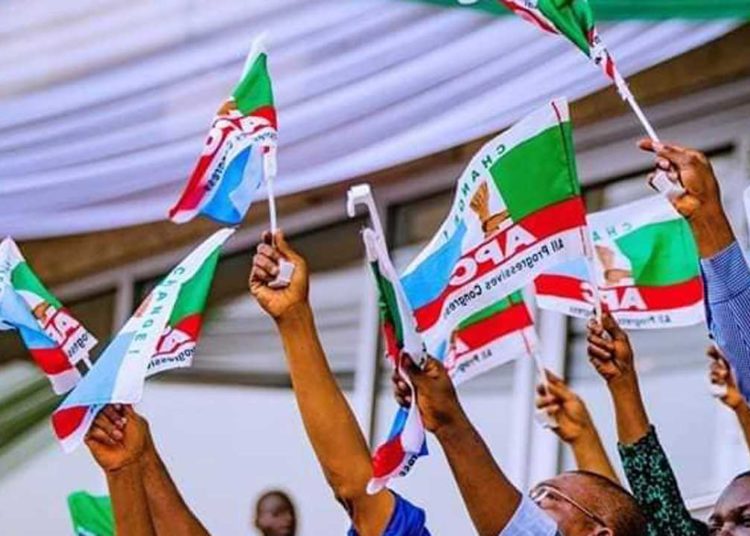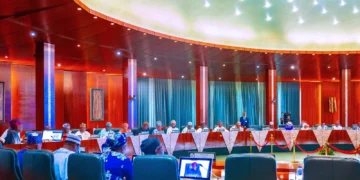“What Nigerian politicians cannot destroy does not exist.”
Aside from copying the American presidential system of government which is insanely expensive, Nigeria also copied the delegate system for the selection of candidates at all levels.
Delegateship has become the real deal in Nigeria and an opportunity for delegates to be showered with money rain, often at the expense of better aspirants who have no money to share.
There are jokes everywhere of delegates who bought cars and even houses merely because they were delegates. There are stories of candidates who are hunting for delegates who took millions from them without voting for them, but voted for others who paid humongous sums for votes.
There is in circulation videos of candidates doling out fat sums in all currencies to delegates to vote for them. During these trading sessions, there is no hint or discussion of any positive agenda other than cash and carry. That is not how it is supposed to be.
In the United States there are about 4,051 pledged delegates. Of the 4,765 total Democratic delegates, 714 (approximately 15%) are superdelegates, which are usually Democratic members of Congress, Governors, former Presidents, and other party leaders and elected officials. These are individuals who represent their state at national party conventions. The candidate who receives a majority of the party’s delegates wins the nomination. The parties have different numbers of delegates due to the rules involved in awarding them. Each
party also has some unpledged delegates or superdelegates. The process in United States is largely transparent and no politician dare share dollars to swing the vote without dire consequences. But in Nigeria, what politicians cannot destroy does not exist, including democracy itself.
Nothing exemplifies this more than the abuse of the delegate system through the dollarization of the whole process. This aberration has resulted in money rains for privileged delegates. As we Nigerians say
the delegates are cashing out at the expense of the generality of the citizenry.
Due to the monetisation of the process, no thought is given to competence, integrity or capacity to govern. Even the best candidates without the gravy are not as much as given even a single vote by these delegates. What an enormous power they wield. This power has been abused by politicians through their corrupt tendencies.
While amending the Electoral Act, the National Assembly passed a bill – now signed into law – making it mandatory that all delegates for primaries must be elected for that purpose. By doing so, the lawmakers stripped public office holders in the parties of the privilege they long enjoyed of voting in the primaries as statutory delegates.
Otherwise known as automatic delegates, the statutory delegates vote in primaries alongside ad hoc delegates! These statutory delegates include; The current president and vice-president and former office holders; governors and their deputies; senators, members of House of Representatives and of state assemblies; local government chairmen and their deputies; ward councillors; chairman of the party in all the 774 local government areas.
The troubling issue however, is the monetization of our democratic and recruitment processes. This is sadly having a toll on our democracy and could damage it irreparably. The monetisation of the electoral process in which the cost of nomination forms is beyond the reach of average Nigerians who constitute the majority of the population has shut out significant numbers of our people from coming out to serve their fatherland as elected public officials. Most of those shut out are the best brains of the country who for lack of money cannot offer themselves to serve. They have therefore left the stage for moneybags who became moneybags not because of their productivity or innovations but solely because they are in government or had been close to government and associated corruption.
These class of politicians who constitute less than one percent of the total population of Nigeria are threatening our democracy by their desperation for power. It is such desperation that make aspirants bribe delegates with upwards of $10,000 or $15,000, that is if the reports in the media are to be believed. In the last Peoples Democratic Party (PDP) presidential primary the story of dollars rain was trending in various social media platforms that even the anti-corruption agency, the Economic and Financial
Crimes Commission (EFCC) had to storm the venue of the event, the Moshood Abiola Stadium Abuja.
It is important that this nation addresses the use of money to the extent that people of questionable characters are being elected as candidates of political parties merely on the basis of their cash power. It is as a result of this mercantile delegate system that most of those chosen to represent Nigerians are more of business men than public spirited individuals. It also explains why nothing is working in the country.
How do we protect our democracy from the moneybags? How do we create the enabling environment for the best to come out to lead the country? The Independent National Electoral Commission (INEC) should do something about this abuse of our democracy. It is the responsibility of INEC to ensure that campaign funding limits are not violated and culprits are penalized according to the law.
The 2022 Electoral Act increased the limits for campaign spending.
This has practically turned leadership into a businessman’s investment opportunity, thus precluding and excluding those without huge war chests. Under the new law, a presidential candidate can now spend up to N5 billion as against the former N1 billion acceptable in the 2018
Act. A governorship candidate can now spend up to N1 billion from the previous N200 million while a senatorial candidate can spend N100 million as against the previous N40 million. It is obvious that the lawmakers did this to shut out potential opponents so that they can totally capture the Nigerian State.
To make matters worse there is no indication that INEC is fulfilling its statutory role of regulation of campaign funding. They are yet to take a position on the money rain at the primaries that it also monitored. INEC needs to do more to sanitize campaign funding by moneybags.
The Nigerian people should reject candidates who emerged through monetary inducements and not because of their abilities to deliver good governance to the people. The New Electoral Act needs a serious review in terms of campaign funding and cost of nomination forms.
The anticorruption agencies should be proactive in the execution of their mandates and go after the moneybags endangering our democracy.
Nigeria’s democracy needs to be retrieved from the moneybags and return it back to the people.
MAY NIGERIA REBOUND!





